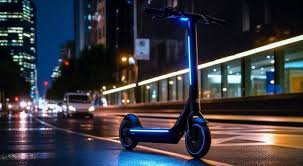In onlangse jare, elektriese bromponies het in gewildheid toegeneem, reparatie fatbike transforming the way we navigate urban landscapes. Hierdie slanke, battery-powered vehicles offer an eco-friendly alternative to traditional modes of transportation, helping to alleviate traffic congestion and reduce carbon emissions. This article explores the various aspects of electric scooters, from their benefits and challenges to their impact on urban mobility.
The Advantages of Electric Scooters
- Eco-Friendly Transportation
Electric scooters produce zero emissions, making them an environmentally friendly option for urban commuting. By reducing reliance on fossil fuels, they contribute to improved air quality and help combat climate change. - Cost-Effective
Compared to cars and public transportation, electric scooters offer a more affordable means of travel. Users save on fuel, parking fees, and maintenance costs, making them an attractive option for budget-conscious commuters. - Convenience and Accessibility
Electric scooters are lightweight and easy to maneuver, making them ideal for short trips. Many cities have implemented scooter-sharing programs, allowing users to rent scooters on-demand via smartphone apps. This convenience has made them a popular choice for quick errands and last-mile connectivity. - Reduced Traffic Congestion
As cities become increasingly crowded, electric scooters provide an effective solution for reducing traffic congestion. By offering a smaller footprint on the road, they can navigate through tight spaces and help decrease the number of cars on the streets. - Health Benefits
While riding an electric scooter is less physically demanding than cycling, it still encourages outdoor activity. Riders engage their core muscles to maintain balance and can enjoy the fresh air, promoting a healthier lifestyle.
The Challenges Facing Electric Scooters
Despite their advantages, electric scooters also face several challenges:
- Safety Concerns
The rise of electric scooters has been accompanied by an increase in accidents. Riders often lack the protective gear used by cyclists, and the speed of electric scooters can lead to severe injuries. Cities need to implement safer infrastructure, including dedicated lanes and clearer regulations. - Regulation and Licensing
The legal status of electric scooters varies widely across different regions. Some cities require riders to have a license, while others impose restrictions on where scooters can be parked. Establishing consistent regulations can help ensure safety and encourage responsible usage. - Environmental Impact of Manufacturing
While electric scooters are eco-friendly in use, their production and disposal raise environmental concerns. The batteries, often lithium-ion, can be harmful if not recycled properly. Manufacturers are exploring sustainable materials and recycling programs to mitigate these impacts. - Urban Infrastructure
Many urban areas lack the necessary infrastructure to support electric scooters. Limited bike lanes and poorly designed sidewalks can create dangerous conditions for riders. Cities need to invest in infrastructure improvements to ensure the safe integration of electric scooters into the transportation ecosystem.
The Future of Electric Scooters
The future of electric scooters appears bright as technology advances and urban planning evolves. Innovations in battery technology may lead to longer ranges and shorter charging times, while improvements in GPS and mapping software will enhance safety and navigation.
Cities are also recognizing the potential of electric scooters to address transportation challenges. Many municipalities are partnering with scooter-sharing companies to develop integrated mobility solutions that include scooters, bikes, and public transit. This holistic approach aims to create a seamless transportation network, encouraging more people to leave their cars behind.
Afsluiting
Electric scooters have emerged as a transformative force in urban mobility, offering a sustainable and convenient alternative to traditional transportation methods. Terwyl uitdagings oorbly, the potential benefits of electric scooters are significant. With continued investment in infrastructure, safety measures, en tegnologie, these vehicles may play a vital role in shaping the future of urban transportation. As cities evolve to accommodate this trend, electric scooters could help create cleaner, more efficient, and accessible urban environments for everyone.

